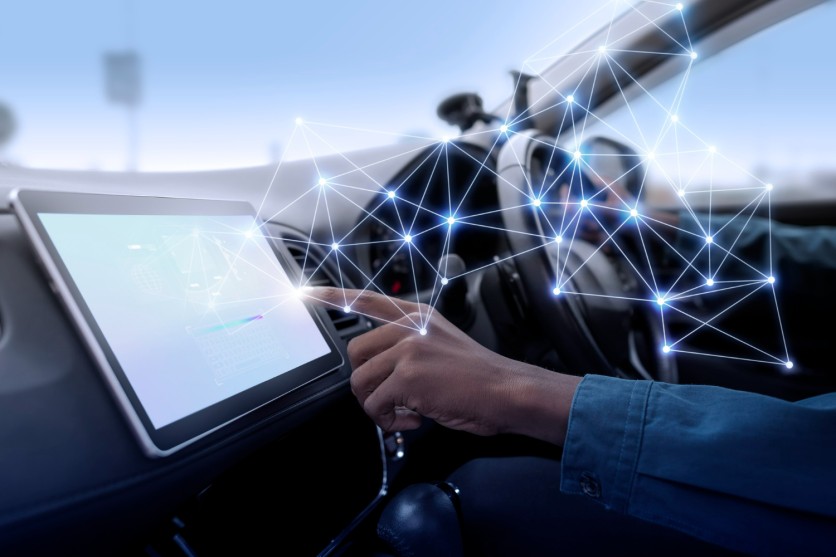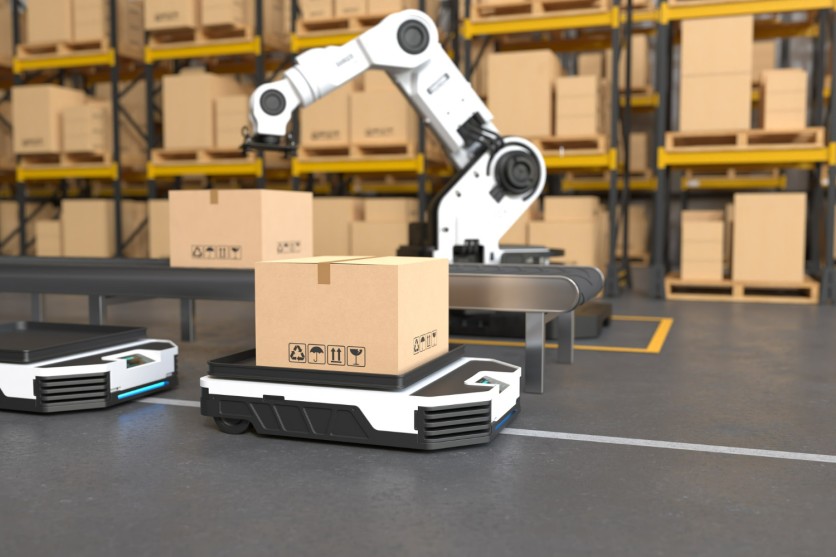
rawpixel.com on Freepik
Abstract: The rapid advancement of artificial intelligence and automation is restructuring logistics operations worldwide. AI-driven solutions provide unparalleled efficiencies to the logistics sector grappling with increasing demands, labour shortages, and cost pressures. At ReturnQueen, we leveraged AI to streamline reverse logistics and optimise return management. In this article, I am going to explore how AI and automation are transforming logistics and at the same time, examine challenges and future directions for AI integration in logistics operations.
Introduction
There is no doubt that the logistics industry is the backbone of global trade. However, traditional operations face certain challenges, be it the fluctuating demand, high transportation costs, shortage in labour, or the increasing complexity of supply chains. With AI and automation coming in, these inefficiencies are managed well. A study by PwC estimates that AI and automation in logistics could contribute up to $1.2 trillion in economic value globally by 2030.
Applications of AI and Automation in Logistics

user6702303 on Freepik
Let's first explore how AI and automation are used in the logistics industry.
- Demand forecasting and inventory optimization: Many AI-powered predictive analytics tools in the market analyze vast datasets, considering factors such as historical sales, market trends, and external disruptions such as weather or geopolitical events. Take the example of the apparel brand Zara. It employs AI to analyze real-time sales data to optimize inventory levels. Many such brands are doing so. During my time at ReturnQueen, I was leveraging predictive analytics for optimizing inventory and return management which was immensely helpful in scaling business nationwide.
- Warehouse automation: Automated systems, such as robotic process automation, warehouse management systems, and AI-driven inventory tracking, significantly enhance efficiency. Let's talk about Amazon. Its AI-powered warehouses use robots that have proved to be 50% more efficient in picking things up than humans. At the same time, Ocado, a UK-based grocery chain, uses AI-driven robots to fulfil customer orders efficiently. This is becoming an everyday phenomenon in logistics and supply chain management at a global level. During my tenure at ReturnQueen, I optimized warehouse operations by integrating AI-driven logistics solutions, enhancing service efficiency, and streamlining operational workflows.
- Route optimization and smart transportation: Companies these days are using AI-powered transportation management systems that use real-time data to optimize delivery routes, reducing fuel consumption and delivery times. For example, UPS's ORION system saves millions of miles per year by optimizing delivery routes. At 9Piecesof8 Software Labs, I worked on enabling the creation of high-performance AI models that streamlined real-time logistics routing solutions.
- Autonomous vehicles and drones: Autonomous trucks and drones are completely changing the dynamics of last-mile delivery. Companies like Tesla and Waymo are pioneering AI-driven self-driving logistics vehicles. According to a report by Morgan Stanley, autonomous trucks could reduce delivery costs by 40% while enhancing safety and efficiency. Amazon's Prime Air project aims to use drones for rapid package deliveries.
- Fraud detection and risk mitigation: AI-driven systems analyze past transactions and flag suspicious activities, reducing losses due to fraud by up to 25%. PayCargo has come out and said that it now uses AI-driven risk assessment to prevent fraudulent transactions. And many other companies are making full use of AI-powered fraud detection systems in the logistics industry. At Nightwatch.io, my work involved managing data security for massive logistics datasets, showcasing AI's role in risk mitigation.
- AI-driven employee training: This one is interesting. AI-generated virtual simulations help train employees in warehouse operations, optimizing onboarding processes. Companies like DHL use AI-based training modules to prepare warehouse workers for automation.
- Cost optimization and scenario planning: In today's time, AI can be used to generate multiple cost-saving scenarios, enabling managers to select the most efficient logistics strategies. This helps them save time and money, hence improving overall efficiency.
Challenges to AI Integration in the Logistics Industry
While there are numerous benefits of using AI in the logistics industry, it comes with its unique set of challenges as well—since it is a fairly new concept.
Initial Investment and Scalability Issues
Well, implementing AI and automation technology is not cost-effective for all levels of firms. It requires a huge amount of capital expenditure, often beyond the reach of smaller firms. Even though big businesses like FedEx and Amazon have invested heavily in AI-driven logistics, smaller businesses can find it difficult to justify the expense. To make AI adoption more practical for SMEs, cooperative projects like AI-as-a-service (AIaaS) and alliances with IT companies are also developing. According to reports, AIaaS will provide scalable solutions for companies of all sizes and increase at a CAGR of 34.6% by 2027.
Data Privacy and Cybersecurity Risks
It is known that AI systems rely on vast amounts of data, making them prone to cyber threats. This reminds me of a 2021 case study when global supply networks were affected by a cyberattack on a major shipping line. Going by numbers, supply chain cyber threats have grown by 42% over the last five years, which has prompted businesses to invest in AI-driven security solutions to protect logistical operations. The combination of blockchain technology and AI is being investigated by analysts as a possible way to enhance data security and integrity.
Regulatory Concerns
Regulations are still being modified by governments around the world to support AI-driven logistics. While the U.S. Department of Transportation is establishing legal frameworks for AI-driven autonomous freight transportation, the European Union's AI Act seeks to provide precise criteria for AI uses in logistics. These changing regulations emphasize how important it is for businesses to handle compliance issues when incorporating AI technology. It is one of the concerns that is still existing when it comes to AI and supply chain management, in my view.
Skill Gap Can Be Challenging
Let's talk about the biggest threat that AI and automation pose to humans—job security. My opinion is a bit different here. I believe it is rather creating more jobs if you are skilled enough. According to a World Economic Forum assessment, AI may eliminate 85 million jobs by 2025 while simultaneously creating 97 million new positions needing highly skilled technical labour. Businesses like UPS and DHL are tackling this issue by providing employees with digital skills for AI-powered logistics environments through AI-driven employee training programs. This should be the way! I highly support corporate companies providing skill-enhancement training to their employees. However, this still needs a real push in numbers.
Integration Complexity
According to a Deloitte report, 60% of logistics companies have trouble integrating AI platforms with legacy systems. Nonetheless, businesses like DB Schenker and Maersk are putting hybrid AI solutions into place to close the gap between AI-driven advancements and current infrastructure. Phased implementation plans and industry-wide cooperation to standardize AI frameworks are necessary for the shift to AI-driven logistics.
What lies ahead?
Despite certain challenges at the moment, I feel that AI and automation will continue to shape the future of logistics. It is interesting to see companies like BMW and DHL investing in AI-powered collaborative robots that work alongside human workers, improving efficiency and safety in warehouses. As per reports, by 2028, the collaborative robot market is expected to reach $8.7 billion, with logistics being one of the fastest-growing application areas.
AI-driven optimization is being used to reduce carbon footprints. FedEx is utilizing AI to optimize delivery routes, reducing emissions by 30%. AI-powered predictive maintenance is also being applied to transportation fleets, preventing breakdowns and reducing unnecessary fuel consumption. The green logistics market, driven by AI adoption, is projected to surpass $2.5 trillion by 2035.
It is important to note that traditional supply chains are not the only businesses using AI-powered logistics; manufacturing, e-commerce, and healthcare are all utilizing AI-driven solutions to integrate logistics seamlessly. Pharma firms and Amazon are working together on AI-powered cold chain logistics for the distribution of vaccines. At the same time, the future of automotive logistics is also being impacted by Tesla's AI-powered supply chain models, which use predictive analytics to expedite the production and delivery of electric vehicles.
Conclusion
I believe that the future of logistics will be defined by gen-AI decision-making, faster automation, and robotic advancements. It is easy to overcome the current challenges, and this collaboration between AI and logistics will make big things happen soon.

-
 C114 Communication Network
C114 Communication Network -
 Communication Home
Communication Home


